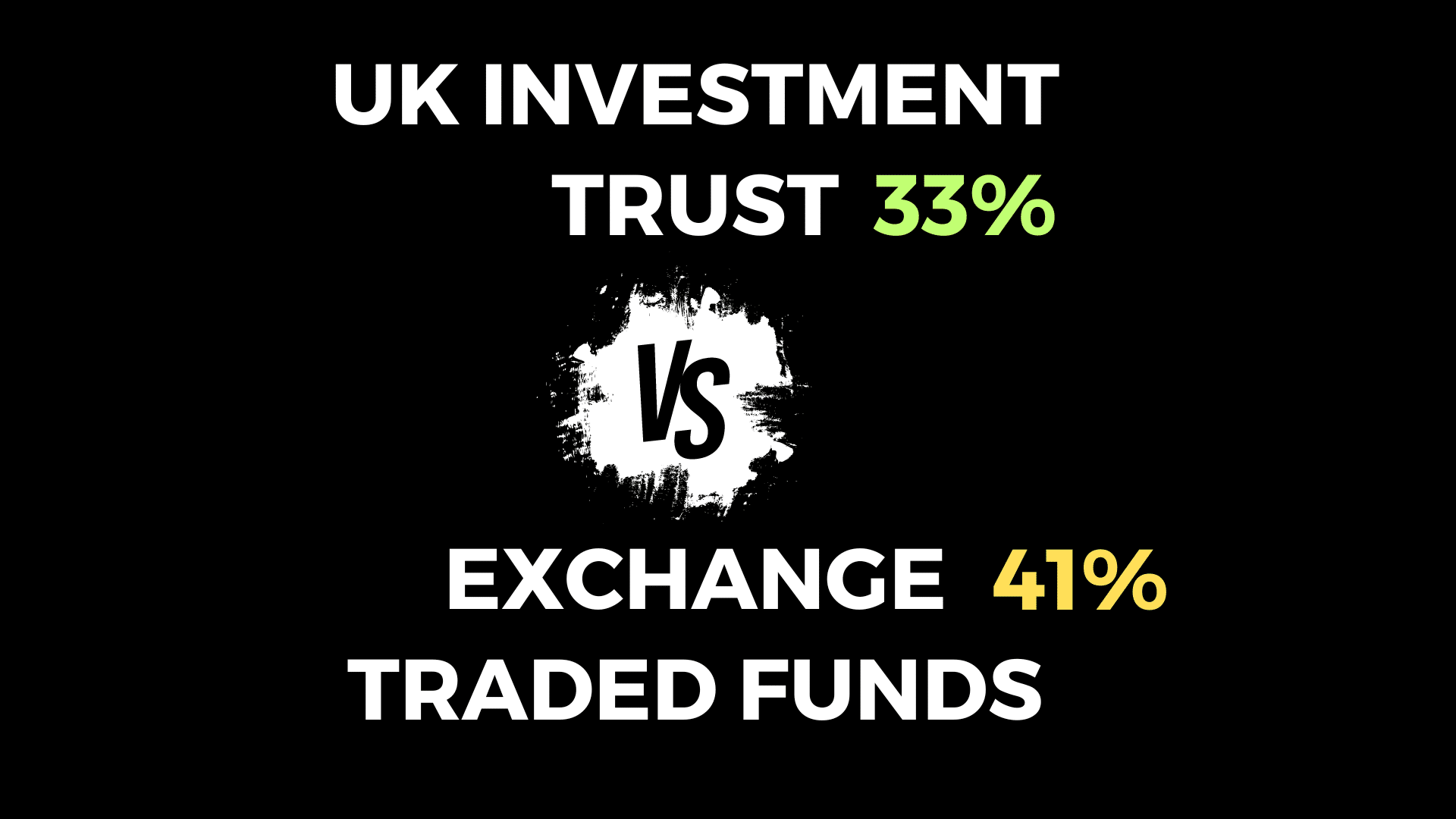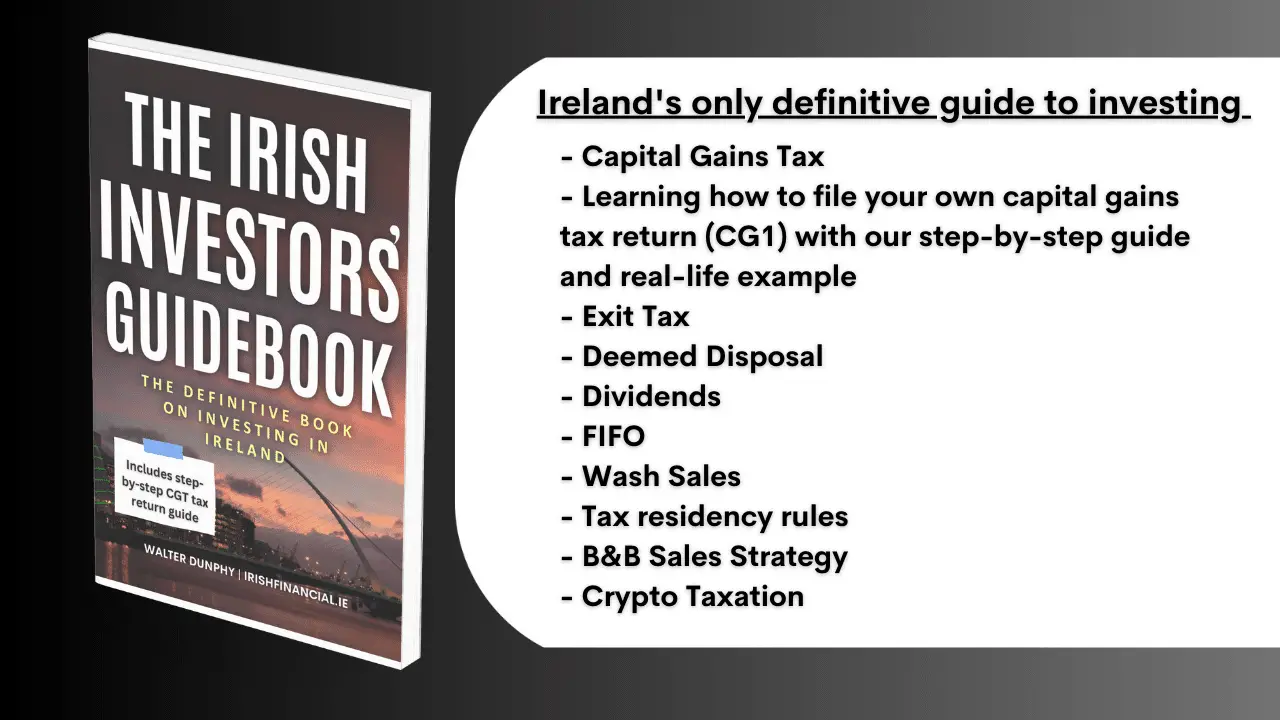Due to the unfavourable tax regime in Ireland for ETF investors, many have been seeking alternatives such as UK investment trusts.
UK investment trusts are a type of publicly traded investment company that pool investors’ money to invest in a portfolio of assets like stocks, bonds, property, or alternative investments. Currently, under Irish tax law, UK investment trusts are taxed at a lower rate than ETFs.
But, are they really to be considered a good alternative for investors who are looking for a more tax efficient way to invest their funds?
The Reason for the Growing Popularity of UK investment Trusts in Ireland
The income and gains received from investing in Exchange Traded Funds (ETFs) in Ireland are taxed a high rate of 41% exit tax. On top of this, on the 8th anniversary of your investment, investors must pay 41% on unrealised gains under the deemed disposal rule.
These punitive rules and rates have long been a pain in the side of many an Irish investor, and therefore has led to individuals to seek out any other alternatives.
UK Investment trusts have been touted as a possible alternative as they are currently taxed under capital gains tax in Ireland which is at a lower rate of 33%. The added benefit of this type of investment being taxed under CGT, is that is also enables the investor to claim and an annual CGT exemption of €1,270 and to offset losses against profits made on other investments.
But should taxation be your only consideration? UK Investment trusts and ETFs are fundamentally different in how they operate.
Comparison of UK Investment Trusts vs Regular ETFs
The below table will give you a quick snapshot of the key differences between UK investment Trusts and investing in a regular ETF that tracks something like the S&P500 (in Ireland):
| Feature | UK Investment Trust | ETF (e.g VUSA) |
|---|---|---|
| Structure | Closed-end fund | Open-end fund |
| Taxation | 33% CGT on realised gains Income taxes on dividends Annual CGT exemption €1,270 | 41% Exit tax on realised gains & income Deemed disposal on 8th anniversary of investment No annual exemption |
| Management | Actively Managed | Passively Managed |
| Ongoing Charges | High fees usually 0.8-2% | Generally very low 0.07-0.2% |
| Investment Strategy | Wide range of strategies employed to try to “beat the market” | Tracks a specific index |
As noted in the table above, the main difference when you invest in a UK investment fund is that you are investing in an actively managed fund, which has a big knock on effect on the ongoing fees you pay on an annual basis.
Imagine a busy chef in the kitchen, constantly tasting, adjusting, and adding ingredients to create a unique dish. A portfolio manager actively researches, buys, and sells individual stocks or bonds within the fund, aiming to outperform a specific benchmark (like the S&P 500).
This hands-on approach carries higher fees to cover the manager’s expertise and trading activity. Potential for higher returns but also higher risk due to individual stock selection and market timing.
The Impact of Higher Ongoing Fees on your Profits
To get a feel for the impact of these high ongoing fees can have on your investment returns, let us go through a simple example.
Assumptions:
- Amount invested each year: €3,000
- Annual return on both funds: 8%
- Fees of UK Investment Trust 1.5%
- Fees of ETF 0.07%
Scenario 1 – 5 Year Time Horizon

In this scenario, the investor does not sell their investment until year 5. If both funds returned a similar return of 8% per annum, then the UK investment trust would have return a profit after tax of €2,311, which is €237 more than the ETF in this situation.
Scenario 2 – 10 Year Time Horizon

When we extend the time horizon out further to 10 years, the result is the opposite. The impact of the higher ongoing charges more than offsets the reduced tax rate on the UK investment trust . The investor would have been €487 better off with the ETF.
Due to the deemed disposal rule however, the investor would have had to pay a portion of the taxes on this investment in year 8, 9 and 10.
Final Thoughts
There are many important criteria to take into account when choosing where to invest your money, and that decision should not be based solely on the taxes you could potentially pay.
While actively managed funds do set out to try and beat index funds, more often than not, over the long term this does not happen. Therefore, if you get into bed with the wrong investment manager you could be shooting yourself in the foot.
And not to mention the fees, people often forget to take into account the huge impact the ongoing fees can have on your returns. These fees are calculated on your gross investment whether you make a profit or a loss. Whereas, the taxes will only be charged on your profit when it is realised.
So are UK Investment trusts really a good alternative? As with everything, it depends. If the fund managers can at least match or outperformance indexes like the S&P500, and the fees are not extravagant, then maybe it could be worth considering.
Disclaimer: This blog post is for informational and educational purposes only and should not be construed as financial advice.






